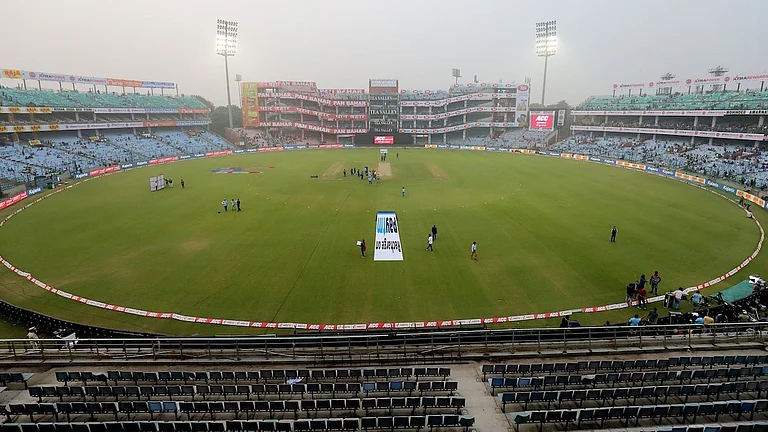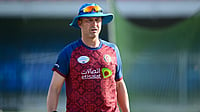India did not want to take a hostile stand against Russia in the Ukraine war as it involved "practical politics" but New Delhi could have told the Russians where it stood, Congress leader Shashi Tharoor said Saturday, noting that finally, Prime Minister Narendra Modi gave a "clear message" with his "not an era of war" remark.Tharoor also predicted a "gradual downgrading" of India's relationship with Russia for practical reasons, pointing out that Moscow is becoming more and more dependent on China."For India, over time, how useful is a friend and partner who is more dependent on your principal adversary. China has killed 20 of our soldiers on the borders just two years ago. We cannot forget that quickly," he said during a session at the Raisina Dialogue here.
In these circumstances, a Russia that is China-dependent or looks more like a junior partner to China is much less useful to India than perhaps the Russia that embarked on this war, said the former minister of state for external affairs said in Raisina Dialogue during the session titled 'Eastern Promise: The Power Shifts in EU Politics'. Asked about External Affairs Minister S Jaishankar's remark last year that Europe thinks its problems are that of the world's but the world's problems are not Europe's problems, Tharoor said those comments were greeted with a lot of approbation in India and many other countries. "It is very interesting that at the start of the Raisina Dialogue this year Italian Prime Minister Georgia Meloni responded very specifically to those comments. She said two things and that struck home first was that when the sovereignty of a member state of the UN is violated that is not just Europe's problem and the second thing was that due to the impact of the war, Europe's problems have become the world's problems," Tharoor recalled.
"For all of us to pretend that all of this is something we can afford to ignore is not an option," the Lok Sabha MP said, adding the war in Europe has affected the rest of the world in a very tangible, measurable, and quantifiable way. He said, "What Jaishankar was alluding to was a slightly different aspect… when India's border is violated with impunity, whether by our friends from the north in China or the terrorists coming across the border from Pakistan, Europe behaves as if that's India's problem." "There is no great solidarity expressed. But when a European border is violated, the expectation seems to be that the rest of the world should be concerned. I think that was his (Jaishankar's) concern. I should not be speaking for him, I am in the Opposition. But the point he was making was about double standards," Tharoor said.
At an event in Slovakia in June last year, Jaishankar was severely critical of the "European mindset". He said Europe has to "grow out of the mindset that Europe’s problems are the world’s problems, but the world’s problems are not Europe's problems". Asked if the Russia-Ukraine war is a local war, Tharoor said it is and it is not as well. "It's local in the literal sense as the emergent destruction is in one place Ukraine but the rest of the world, if not affected physically, has been affected in all these measurable ways," he said. Ultimately, any war that has global consequences cannot be treated purely as a European problem, Tharoor stressed. Asked by the moderator of the session as to whether the war will impact India's long-standing relationship with Russia, Tharoor said, "I was the only MP to actually speak against the Indian position in Parliament because I felt we had let down a number of principles that we always stood for since Independence, especially in our first few statements at the UN."
"I am pleased to say that India's position did evolve to the point with these principles are now being advocated regularly by India. Why was India reluctant to take a stand against Russia? I would say there was some practical politics involved," he said. The Congress leader noted that India had a long relationship with Russia and before that the Soviet Union which was a strong backer of India on issues that mattered to it such as Kashmir at the UN Security Council. "Russians often protected us against action by hostile powers… there is a defence relationship. You don't disrupt your relationship with the supplier of such essential things. So it is a relationship with some substance that India did not want to lightly dismiss by completely taking a hostile stand, that much I can understand," he said.
"But I do believe we could have told the Russians where we stood and it was interesting that finally Prime Minister Modi, in Samarkand, said directly in front of the world's cameras that this is 'not an era for war, Mr President', which is as clear a message," Tharoor said. India in its own way is pushing for a solution, he said. Tharoor also noted that the longer this war goes on, the capacity of Russia to be a reliable supplier of defence equipment and so on will be degraded. "There are clear signs that India does not want to be seen taking sides against Russia but nor is it in any way conveying support or even condoning the war. It is accepting it as reality," he said. India has abstained from the UN resolutions on Ukraine and consistently underlined the need to respect the UN Charter, international law and the sovereignty and territorial integrity of states.India has also consistently underlined that in the conflict, the entire Global South has suffered "substantial collateral damage" and developing countries are facing the brunt of the conflict's consequences on food, fuel and fertilizer supplies.


























